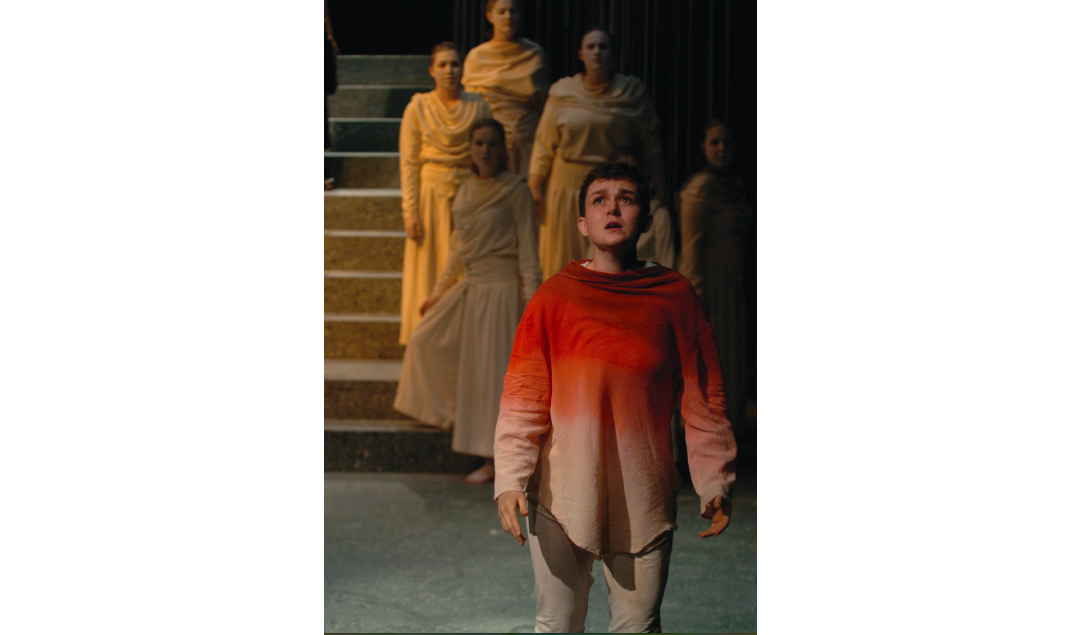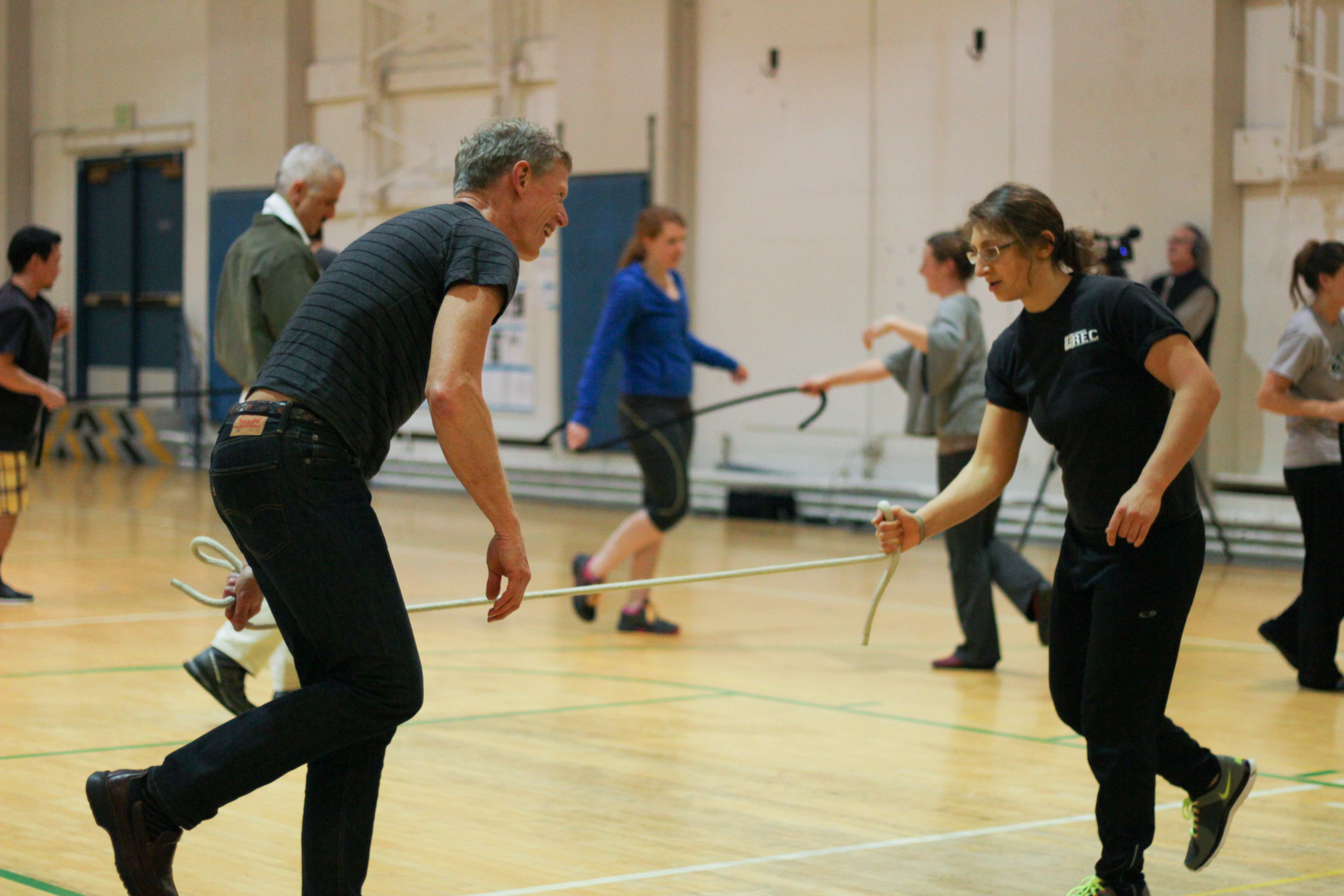
“I don’t like plays.” As a theater geek who often tries to convince people to go see a play or a musical, this is a common response that I get. Some people just don’t like plays. They think that the theater is boring and outdated. Why go see a play when they can watch Netflix in the safety of their own home?
I’ll tell you why. The theater has the ability to move people in an intimate way that most movies just can’t. “Antigone,” directed by assistant theater professor Jess K. Smith, is an incredibly raw, moving and emotional experience that has the ability to reach anybody.
While Smith acknowledges that Greek plays in particular can often leave the modern audience feeling out of the loop, she nonetheless emphasizes that the motifs of “Antigone” are “resonant with our own time.” While the play may have been written centuries before even the birth of Christ, Smith does an excellent job in creating a contemporary interpretation of the work while still paying homage to the time period it is set in.
“Antigone” is produced entirely by University of Puget Sound faculty and students. In the lead role of Antigone is senior Clara Jacobs, with sophomore Julian Aikens-Helford in the role of Kreon. The production incorporates taiko, a form of Japanese drumming style, as well as butoh, a style of Japanese contemporary dance.
The taiko drumming, which is very dramatized, was often in sync with the action and would speed up and crescendo to reflect the actions that were taking place on stage. This audio effect added a tangible element of suspense and anticipation that the performance would have otherwise lacked.
Like the drumming, the butoh dancing often mirrored the events that had already taken place. A majority of the dancing was performed by the chorus, who are on stage for the entire show.
A chorus member, senior Emma Kelly, confirmed that “standing for the entire show” was “a physical challenge that isn’t present in most productions.”
Jacobs, who plays Antigone, also commented that not only are the chorus members just standing there, they are also reacting to the events that are taking place. Smith added that the “choral odes are super visible,” contributing to the “endurance test for the chorus that’s really unique to this play.”
The play focuses on the main character, Antigone, and her struggle in burying her fallen brother, Polyneices. The burial of Polyneices has been forbidden by the king, Kreon, under pain of death. The play follows Antigone’s inner struggle with this declaration and how she decides to react to it. The events of the play are a moving testament to the strength of familial love and to the fallibility of people’s good intentions.
Described as “gut wrenching and human” by Aikens-Helford, “Antigone” is deserving of an audience. It will be performed on Nov. 2 at 7:30 p.m., as well as on Nov. 3 at 2 p.m. and at 7:30 p.m.

